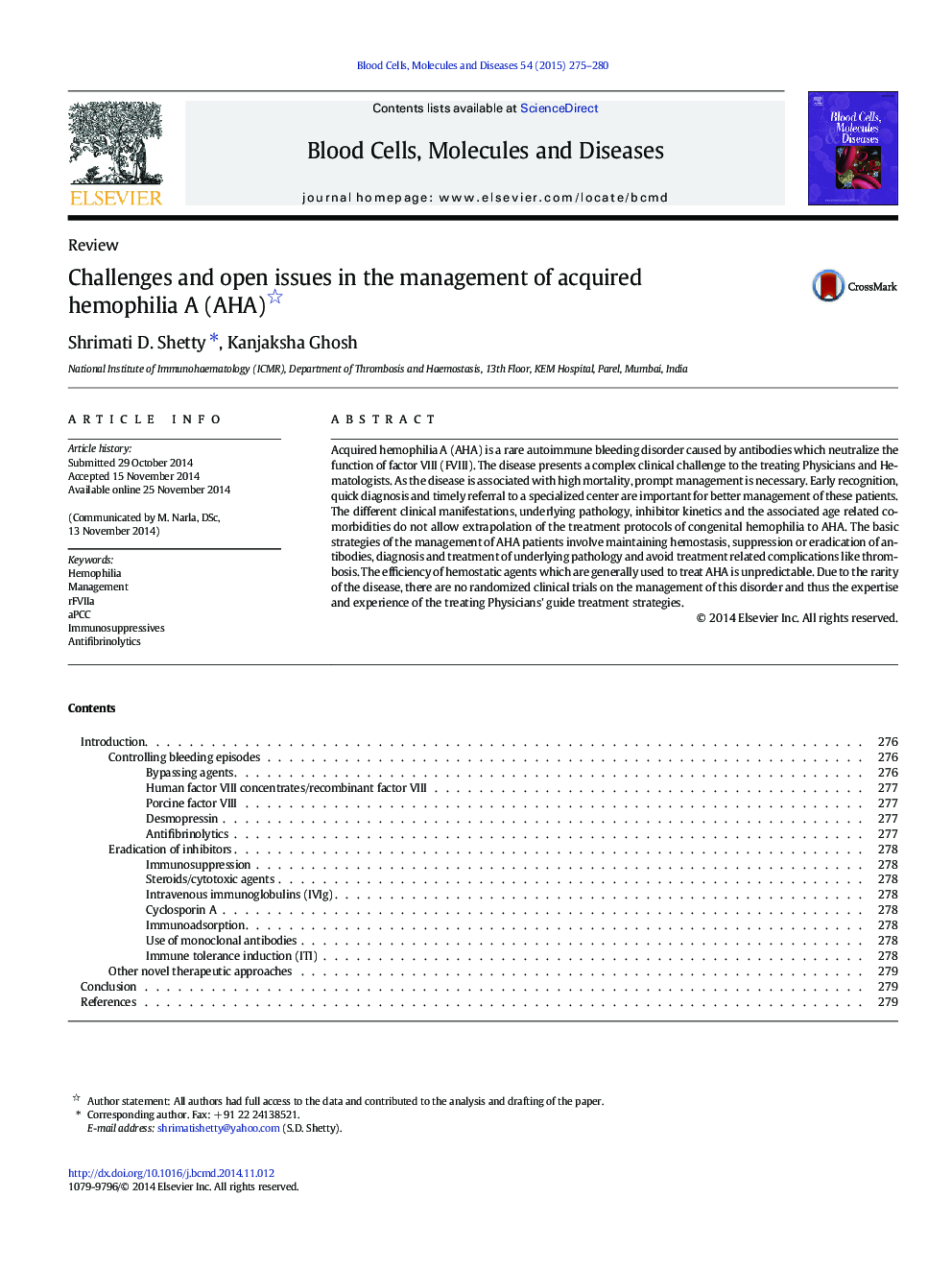| Article ID | Journal | Published Year | Pages | File Type |
|---|---|---|---|---|
| 2827219 | Blood Cells, Molecules, and Diseases | 2015 | 6 Pages |
Acquired hemophilia A (AHA) is a rare autoimmune bleeding disorder caused by antibodies which neutralize the function of factor VIII (FVIII). The disease presents a complex clinical challenge to the treating Physicians and Hematologists. As the disease is associated with high mortality, prompt management is necessary. Early recognition, quick diagnosis and timely referral to a specialized center are important for better management of these patients. The different clinical manifestations, underlying pathology, inhibitor kinetics and the associated age related comorbidities do not allow extrapolation of the treatment protocols of congenital hemophilia to AHA. The basic strategies of the management of AHA patients involve maintaining hemostasis, suppression or eradication of antibodies, diagnosis and treatment of underlying pathology and avoid treatment related complications like thrombosis. The efficiency of hemostatic agents which are generally used to treat AHA is unpredictable. Due to the rarity of the disease, there are no randomized clinical trials on the management of this disorder and thus the expertise and experience of the treating Physicians' guide treatment strategies.
